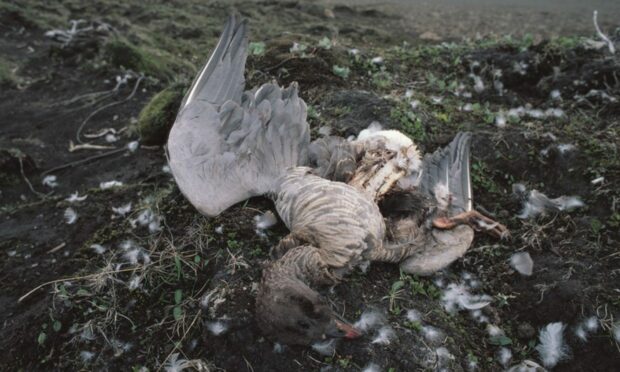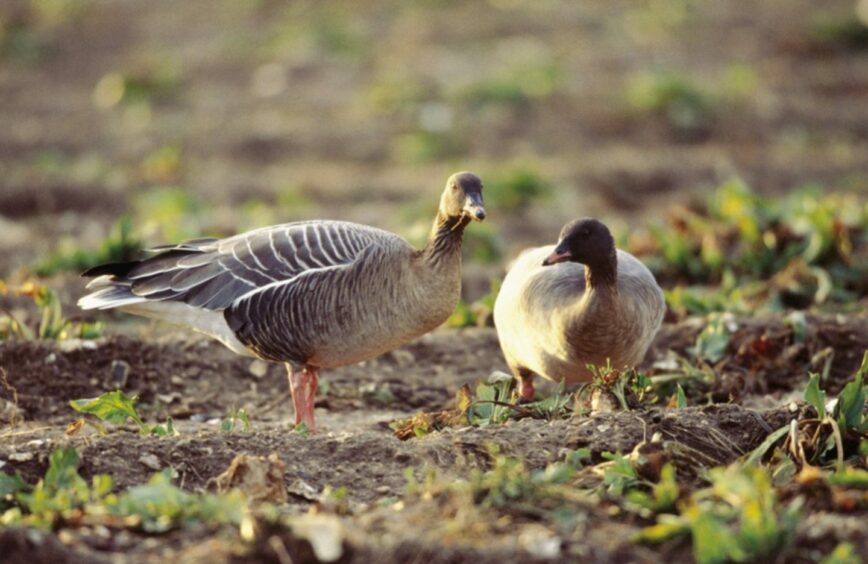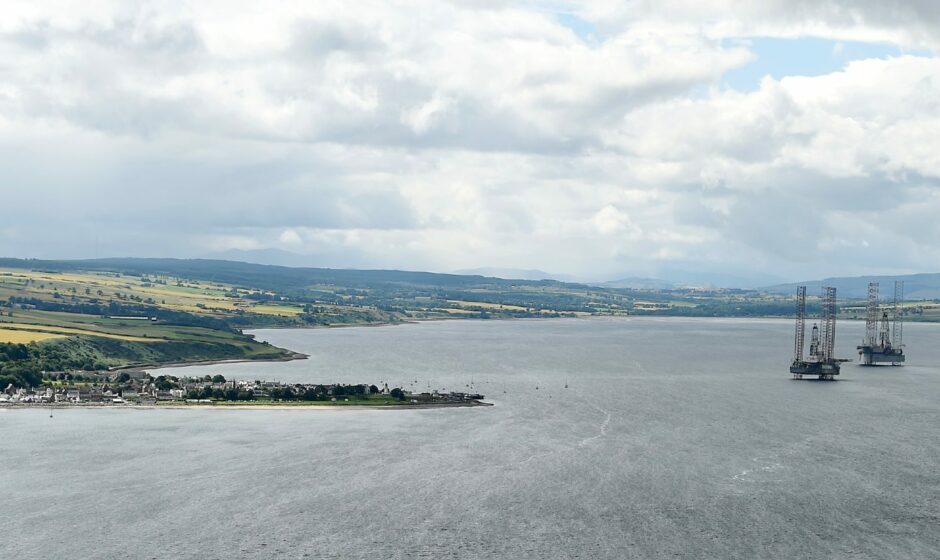A bird flu outbreak has been confirmed on the Cromarty Firth after reports of dead birds lying on shorelines.
The RSPB’s head of habitats and species Dr Paul Walton said pink-footed geese have fallen victim.
He said: “What we have is an outbreak of highly pathogenic avian flu (HPAI) in pink-footed geese.
“What people are seeing is likely to be the second biggest outbreak in the UK this year.”
He explained that the first outbreak occurred in November on the Solway Firth wiping out a third of the Svalbard Barnacle Geese population.
‘We are in unknown territory’
Highly pathogenic avian flu is a strain of bird flu which is causing concern in the UK.
Dr Walton said: “The geese which have tested positive were at Culbin Sands. Four out of the 16 found dead were tested and they were all positive.
“We are now finding hundreds dead around Nigg Bay and Udale Bay – they haven’t been tested yet so we cannot be sure but it is highly likely that this is HPAI.”
He and other experts feel they are “completely in unknown territory” and say this level of impact on wild birds has not been seen before.
He added: “Hopefully it will pass but we won’t know the impact until pink-footed geese return from their migration next year.
“Geese can bounce back from this sort of thing if they breed successfully.”
Social media alerts
Members of the public have been sharing their sightings on social media.
Locals are raising the alarm over sites at Ferry Point in Dingwall, Jemimaville on the Black Isle and along Dornoch Beach.
One bird enthusiast in Dingwall said: “My daughter loves that walk at Ferry Point and friends walk their dogs there which is why I shared a post on social media about it.
“Also, a friend in the Dornoch area has mentioned bird flu up there so I suspected it could be bird flu that is causing this.”
What are pink-footed geese
An RSPB factfile describes the pink-footed goose as a medium-sized goose, smaller than a mute swan but bigger than a mallard. It is pinkish-grey with a dark head and neck, a pink bill and pink feet and legs.
This species does not breed in the UK, but large numbers of birds spend the winter here, arriving from their breeding grounds in Spitsbergen, Iceland and Greenland.
What is the risk to human health?
According to the RSPB, very few strains of avian influenza have been recorded as infecting humans.
Dr Walton said: “As a precaution, we would recommend people do not touch sick or injured or dead birds.
“They should also keep their distance and their dogs should be kept under control so that birds are not disturbed and therefore spreading the virus.”
What can I do?
Dr Walton recommends that if you find groups of dead swans, geese or ducks, or other dead wild birds, such as gulls or birds of prey, you should report them to the Defra helpline on 03459 335577.


